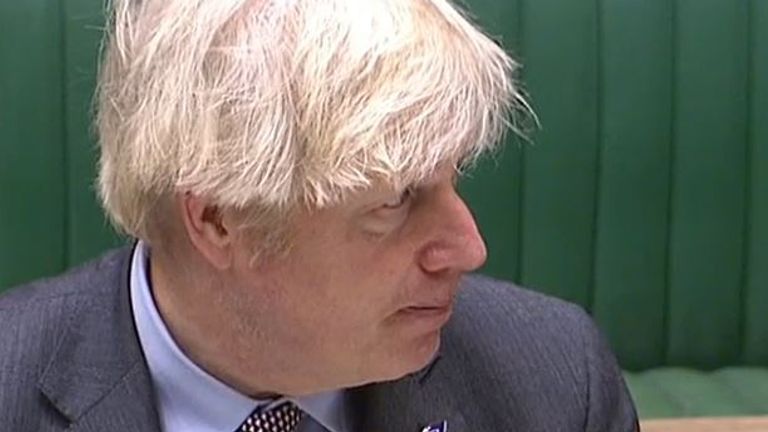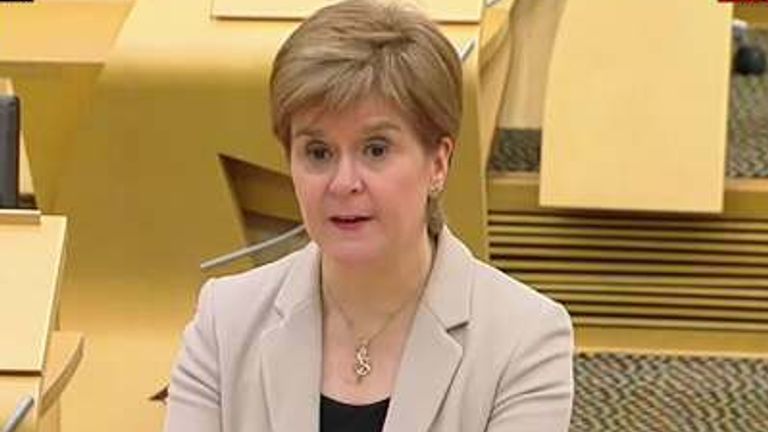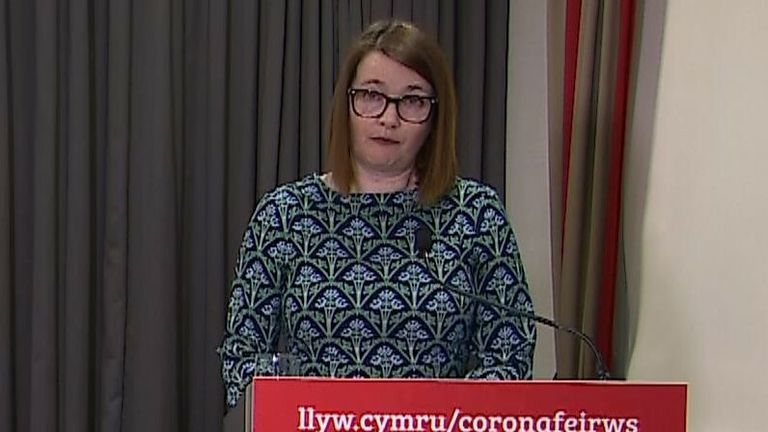A senior Conservative MP has warned the government against “backsliding” on the reopening of all schools in England on 8 March and suggested some younger children should return to classrooms this month.
Robert Halfon, the chair of the House of Commons education committee, told Sky News of his concerns of an “epidemic of educational poverty” and said ministers should consider extending the length of terms or the hours of school days to help pupils catch up on learning.
Live COVID updates from the UK and around the world
The Tory former minister highlighted a new study that found the UK’s youngest pupils have experienced the biggest drop in their learning during the COVID-19 pandemic, as he made his case for some age groups to return after the February half-term.
In Scotland, First Minister Nicola Sturgeon has said some of the youngest pupils could return to classrooms from 22 February.
And, in Wales, children aged three to seven will return after the February half-term from 22 February, along with some older children on vocational courses.
But Prime Minister Boris Johnson has previously said 8 March is the “earliest” date by which the government could allow all children to return to classrooms in England.
And he is not due to unveil his roadmap for easing England’s lockdown restrictions until 22 February, once ministers and government scientists have considered the impact of the restrictions and the effect of the vaccine roll-out on COVID levels.
This would give schools the two weeks’ notice they have been promised, if they are allowed to fully reopen on 8 March.
But Mr Halfon pressed for an earlier announcement on allowing some years back to classrooms.
“I understand why the government are worried and want to ensure people are kept safe,” he told Sky News.
“But if Public Health England are saying primary schools are safe to open, then why not at least open the primary schools after half-term? Or even one or two years of primary schools?
“The study shows the damage it’s doing, particularly to young people.”
The influential MP stressed he was “not a lockdown sceptic” and had voted for the current measures, but he added he was a “schools down sceptic”.
He added: “What my concern is that, long after the coronavirus has gone, we’ll have an epidemic of educational poverty and a mental health crisis affecting young people.
“We’ve got to get our schools open. Despite the wonderful efforts of teachers and support staff, nothing is more important than getting children into school full-time and learning again.
“The risks to children are few, thank goodness, from this awful disease.
“We know that teachers aren’t at any more risk compared to other professions, although I would like to see teachers and support staff get priority for vaccination.
“So let’s get the schools open, let’s have no backsliding in terms of 8 March, if we can’t get them open before, and get our children learning again.”
The prime minister has not ruled out a shake-up of the school calendar as part of efforts to help pupils catch up from missed classroom time.
Subscribe to the Daily podcast on Apple Podcasts, Google Podcasts, Spotify, Spreaker
Mr Halfon supported a consideration of having children back in classrooms for two extra weeks during the summer holidays, but said it was “not going to make a huge difference given the lost learning there has been”.
He advocated adding two hours to the school day – either before or after school – to allow children to do sport, get mental health support or have the academic catch-up they might need.
Meanwhile, a key scientist advising the government has said the prime minister will “have some bandwidth” to start reopening schools in March.
Professor Neil Ferguson, who is part of the New and Emerging Respiratory Virus Threats Advisory Group, told Politico’s Westminster Insider podcast: “The lockdown has really driven down cases quite fast.
“They’re basically halving about every 17 days at the moment or so, and that means in a month’s time – the prime minister’s talked about potentially reopening schools, we might have some bandwidth to do that, at least primary schools.”



